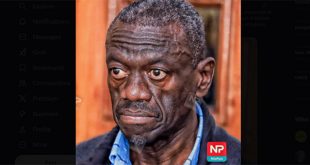
Kampala, Uganda | THE INDEPENDENT | Many private school operators are currently hunting for teachers as educational institutions prepare for full reopening after close to two years of closure in Uganda.
Due to the COVID-19 induced lockdowns, private schools in Uganda laid off their staff since many couldn’t afford to pay them. In October last year, when schools partially reopened a few staff members were recalled to return to class.
Those who did not return to school had to look for alternative jobs to make ends meet. With many of them finding comfort where they are currently working, convincing them to return to classrooms is becoming a difficult task for many school managers.
Mable Nabunya, head teacher of St Henry’s Primary School in Masaka City, says that ever since the president declared that schools will reopen in January, she has been trying to keep in touch with her teachers. “Many told me point blank that they were not sure whether they are coming back leaving me with little option but trying to look out for new ones before it’s late,” she noted.
Nabunya adds that the hunt gained momentum this week when the education ministry released the academic calendar. She says: “It’s tough, back in the days teachers could come knocking on our doors to put in their application before the term opens. I have not seen anyone. Even my effort to look for them is still in vain.”
Several Head teachers interviewed for this story including Thomas Kitendwa of Kampala quality, Ronald Kasada of Namirembe hillside, and Ibra Bayonde of Riverside View Primary School, noted that they are trying to get in touch with their former staff but some have snubbed them, so schools launching a search for replacements before it’s too late.
On radio stations, TV, and all over social media, many schools are advertising for teaching posts for nearly all staff positions.
Willy Mukasa, a teacher at Buddo SS, notes that many of his colleges are currently asking for a pay raise as a condition to return to work yet schools currently are equally stressed and might not afford huge expenditures in payrolls at this specific time.
Before reopening dates were announced, there have been vivid signals that many teachers, after exposure to alternative options of earning, may not return to schools while those who will return are likely to be more absent as they try to balance school and private business.
The recently released 2021 National Assessment Progress in Education-NAPE report highlighted that the majority of the teachers had lost interest in teaching because of inadequate or no pay, and yet the income-generating activities they had established proved a better alternative in terms of earning.

Those who indicated an interest in return noted that they wanted to teach while monitoring their business which could heavily divide their attention at the critical moment when learners need to recover the lost time and work on the lost learning outcomes.
Who will teach our children when school reopens?
With about 40 percent of Uganda’s primary schools and 60 percent of its secondary schools managed privately, the pinch will be felt by the majority of learners, parents, and the entire education system in general.
Riverside’s Bayonde says that if teachers abandon the system as expected, the school might end up employing those who are still at training institutions. He adds that in worst-case scenarios many private schools will end up employing senior six leavers to teach in secondary while primary schools will be using senior four levels.
The administrator adds that if teachers refuse to return to class, in secondary the situation might be cleared as time goes on with more teachers coming out of training instructions. However, at the primary level, fewer teachers will join the teaching force in the next six years.
His argument is based on the recent changes in teacher education that phased out lower teaching qualifications. With the lower qualifications scrapped, there are only two cohorts of primary school teachers at the colleges which will be out in one and a half years. Given the fact that training new teachers might take four years from 2021, the other cohort of teachers will be expected in 2025.
The last time Uganda faced a serious teacher problem was in between the late 1970s and early 1990s. At that time many teachers majority of which were foreign nationals, left classrooms running for their lives due to the insecurity in the country at that time.
Dr. Tony Mukasa Lusamba, a retired educationist says that to arrest the situation, the government recruited licensed teachers to bridge the gap. Lusamba says the government put the minimum requirement for the licensed teacher to senior four for those who were going to teach in primary schools.
“People from different fields were given some form of training and allowed to teach. Many schools also called their former best student to teach. It was a hard time. Another approach was to make teacher education free and that is how I was enrolled in a PTC; my family had no money to send to such an institution. With time Uganda had more than enough teachers,” he added.
However, in a recent interview, Dr Denis Mugimba, the education ministry spokesperson, noted that parents’ schools don’t need to panic over the matter since Uganda has enough teachers needed to teach in the schools.
“Every year, Uganda universities and teacher training centers pass out teachers. more than we take in both in public and private service. It’s true that some teachers will leave the profession, but I can say that many will stay and many who have been looking for employment will join,” Dr Mugimba.
Dr Mugimba added that for public schools, the government is conducting a study to establish teachers who are still at school and those who opted to leave. “Soon we will update the payroll to replace those who will have left and other gaps caused by retirement and death.”
Meanwhile, Juma Mwamula, general secretary of Uganda National Private Teachers Union, says whether the teachers will return or not, the current situation is good for the profession which has been going down. Mwamula says private school teachers and the ministry of education alike should use the situation to solve the plight of teachers in private schools.
Teachers in private schools have over the years been working at the mercy of the school directors with no contracts, and no other benefits. Many of these teachers have been paid depending on the subjects they teach, the numbers they have in class, and the number of hours they teach.
****
URN
 The Independent Uganda: You get the Truth we Pay the Price
The Independent Uganda: You get the Truth we Pay the Price



The schools should increase teacher’s salaries.
Fate will always have its ways. Under the current NRM liaise fais leadership style (Shauriyako) where teachers and doctors are never valued and hence treated shabbily like parasites; who could ever imagine that the unrestricted proliferation of Private Schools is now turning out to be an immediate, medium and remote human resource disaster?
In other words, after all the nasty experiences of being exploited by private Schools entrepreneurs, overworked and the humiliating cut on stone, p-nut salary, homelessness and now driven into bricks mud-pits to earn a living; who still wants to become a teacher?
It is sad!